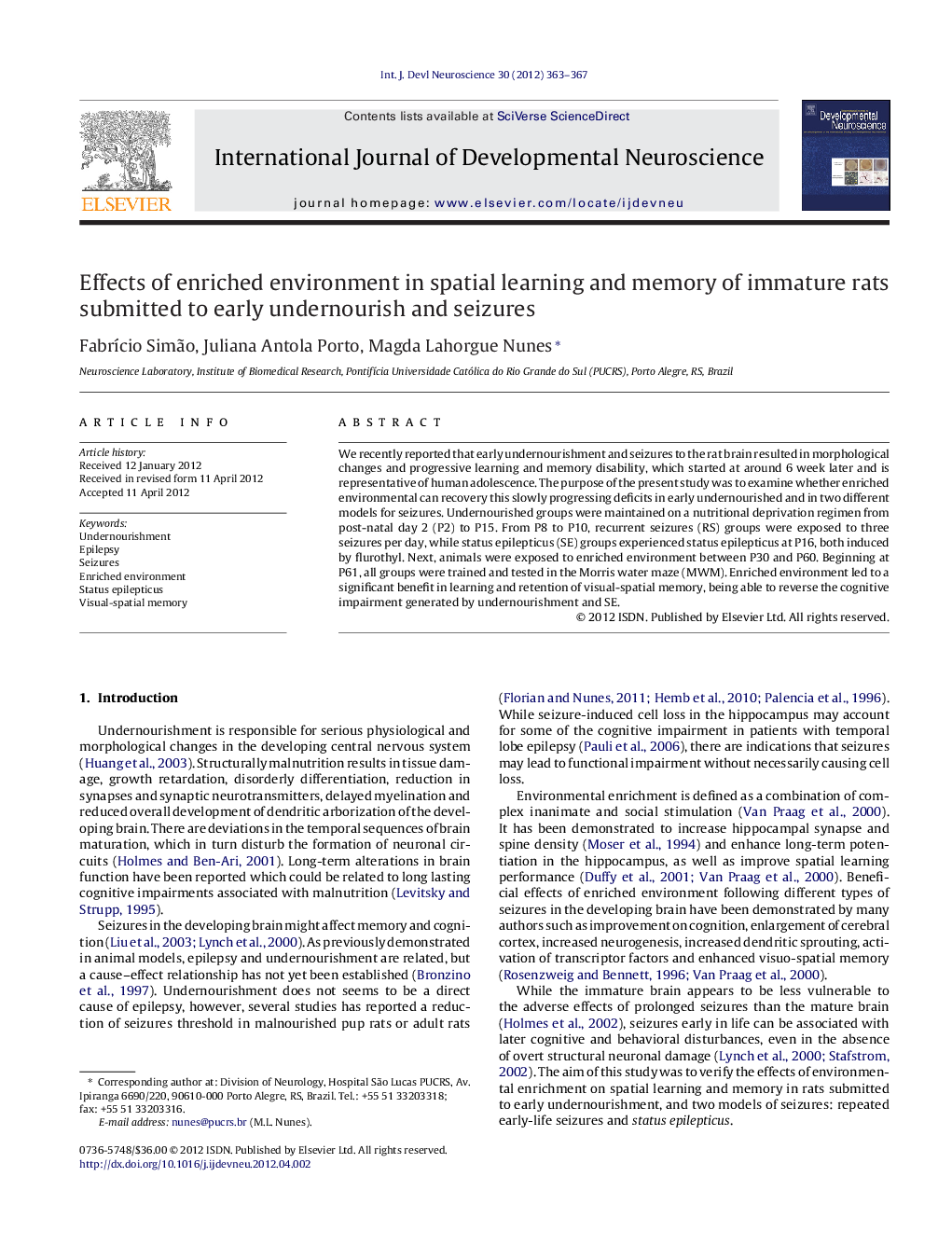| Article ID | Journal | Published Year | Pages | File Type |
|---|---|---|---|---|
| 2786296 | International Journal of Developmental Neuroscience | 2012 | 5 Pages |
We recently reported that early undernourishment and seizures to the rat brain resulted in morphological changes and progressive learning and memory disability, which started at around 6 week later and is representative of human adolescence. The purpose of the present study was to examine whether enriched environmental can recovery this slowly progressing deficits in early undernourished and in two different models for seizures. Undernourished groups were maintained on a nutritional deprivation regimen from post-natal day 2 (P2) to P15. From P8 to P10, recurrent seizures (RS) groups were exposed to three seizures per day, while status epilepticus (SE) groups experienced status epilepticus at P16, both induced by flurothyl. Next, animals were exposed to enriched environment between P30 and P60. Beginning at P61, all groups were trained and tested in the Morris water maze (MWM). Enriched environment led to a significant benefit in learning and retention of visual-spatial memory, being able to reverse the cognitive impairment generated by undernourishment and SE.
► Seizure threshold was decreased in undernourished group. ► Enriched environment improves spatial memory retention. ► The latency to escape was more evident in nourished and enriched than in undernourished animals.
